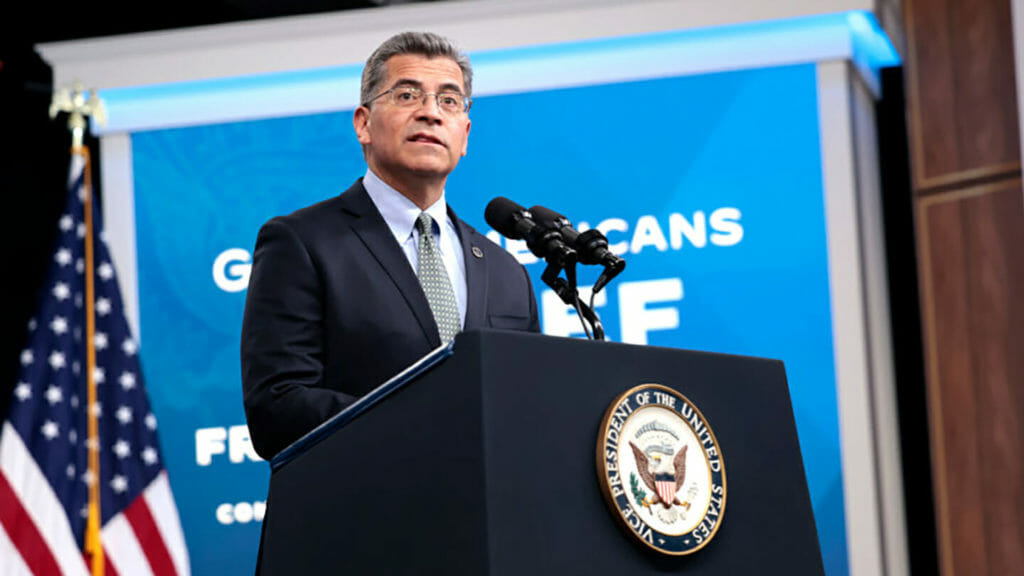
The top US health official on Wednesday complimented nursing homes’ efforts to boost COVID-19 vaccination rates over the last two months, but he also made it clear that conditions must continue to improve. Of particular interest are the approximately 1,000 nursing homes registering zero people vaccinated against COVID.
“Thanks very much for the partnership we have engaged in that has led to some real results,” said US Health and Human Services Secretary Xavier Becerra on a LeadingAge member conference call.
The number of nursing home residents vaccinated against COVID increased by 20% during the six-week push initiated by the White House in November, he noted.
“We’ve done some good work and had some success, but we’re not through this yet,” he said. “You’re caring for the population that’s now greatest at-risk. We need you to keep working. I don’t know how else to say it.”
In December, the White House announced that facility staff could give the shots to residents, but just 50 of the 15,000 nursing homes in the country have become vaccinators, Becerra said. In addition, there is a huge number of skilled care centers with no one vaccinated, he said.
“There are still approximately 1,000 nursing homes out there with zero people vaccinated — zero people,” he said.
‘Stakes are still high’
The Biden Administration has been growing annoyed with low vaccination rates at the facilities, according to Politico. The administration is sending state regulators lists of facilities with zero vaccinated people to assess for penalties.
Becerra also reported that 86% of nursing home residents have received their initial vaccination but that fewer than half are up to date with booster shots. The data shows that the boosters have been “very effective” against the more infectious variants.
Approximately 70% of the new hospital admissions for COVID-19 are people 60 years or older, Becerra said, adding that people over age 65 are the highest risk group for dying from the virus.
“The variants keep coming at us, and the stakes are still high,” he said, noting that 8 in 10 people over age 55 have a chronic health condition that makes them more susceptible to COVID.
Providers praised
After the White House announced the six-week vaccine campaign near the end of last year, LeadingAge and the American Health Care Association/National Center for Assisted Living launched an All Hands on Deck program that Becerra said could serve as a model for other programs.
“It’s not just vaccine updates,” he said. “It’s nursing home quality. It’s the staffing issues and staff burnout. All of these things, we’re going to have to tackle them together.”
The US Department of Health and Human Services set aside $103 million from the American Rescue Plan to help the industry with staff burnout. Becerra said they did not tell nursing homes and other facilities how to use the money, but rather said to focus on workforce resilience.
“We know a lot of people are leaving the profession,” he said. “We will continue to make those kinds of investments with the resources we have because we know it takes more money to bring the new person in than it would to keep a very experienced professional onboard.”
He said the department would look to supplement the industry on training, continuing education, increasing staffing levels, and raising wages.




